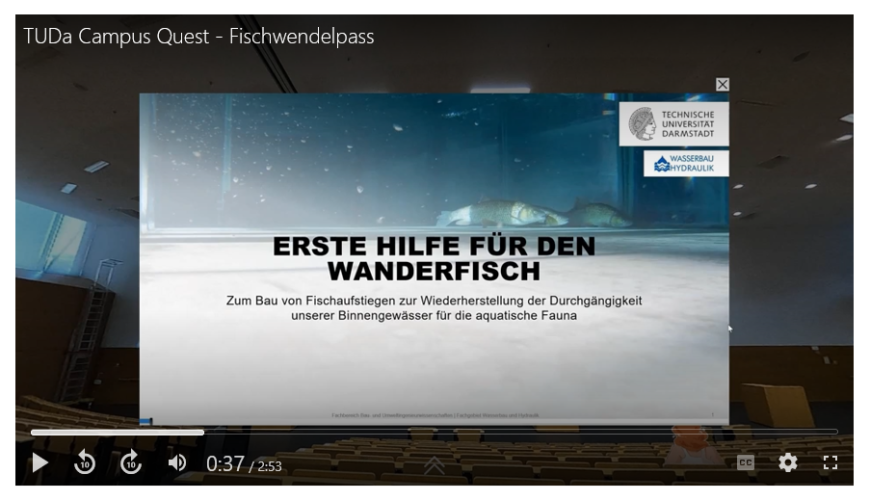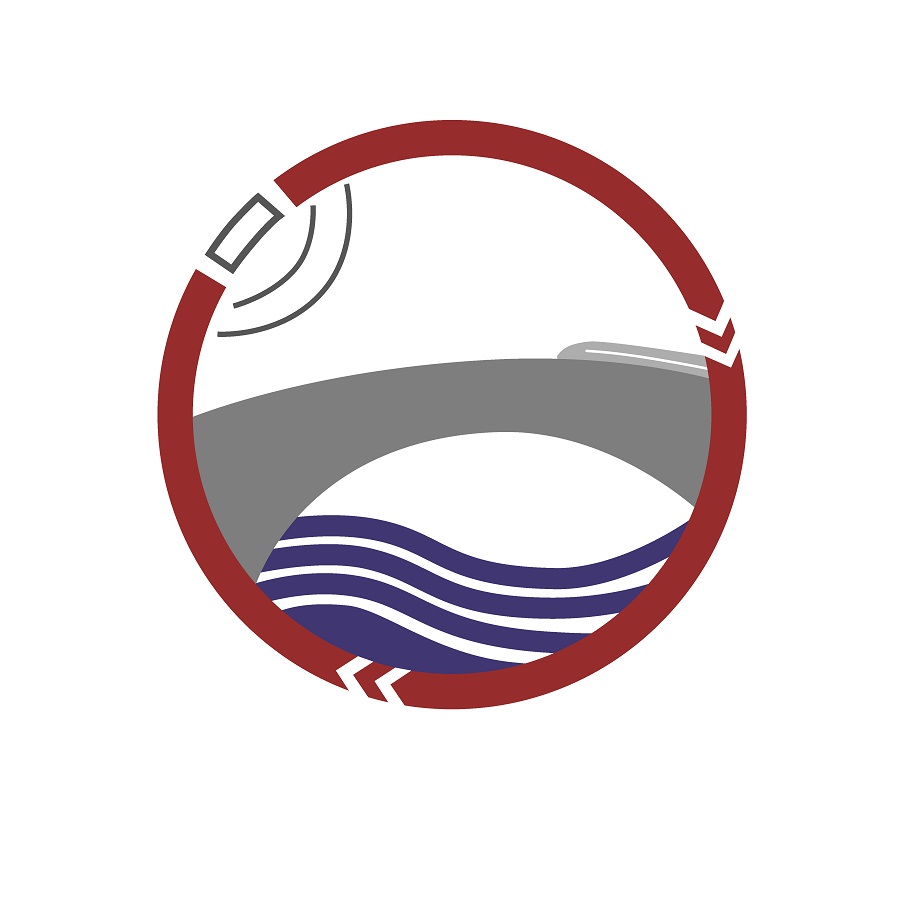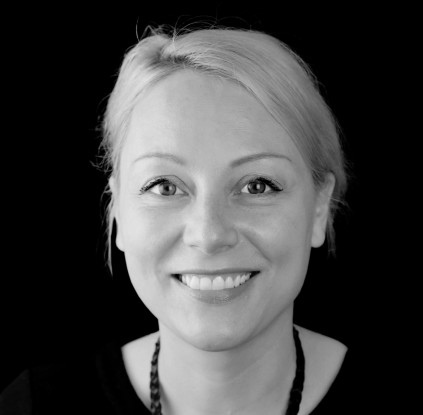OSA – Saving fish and building bridges
Virtual 360° tour for study orientation now online. Two 360° tours provide insights into the Civil Engineering and Environmental Engineering degree programs
2025/06/02 by E-Learning Team der TU Darmstadt
The interactive 360° tour for study orientation shows the Department of Civil and Environmental Engineering at the Technical University from a completely new perspective with the help of 360° panoramas. The target group are prospective students who are invited to explore the degree courses in a playful way with the help of the 360° tour. In the visually appealing and interactive 360° environment, students can experience hands-on what to expect when studying civil and environmental engineering – and gain an initial insight into potential application situations in the discipline.

The interactive 360° tour for study orientation shows the Department of Civil and Environmental Engineering at the Technical University from a completely new perspective with the help of 360° panoramas. The target group are prospective students who are invited to explore the degree courses in a playful way with the help of the 360° tour. In the visually appealing and interactive 360° environment, students can experience in a practical way what they can expect when studying civil and environmental engineering – and gain an initial insight into potential application situations in the discipline.
360° tour: first aid for the migratory fish
This is about getting to know and understand fish ladders and their construction. In the hydraulic engineering research laboratory, you can immerse yourself in the construction of a spiral fish pass.
Coming soon:
360° tour: Which bridge is the right one?
In the context of civil engineering, the focus is on the planning and construction of bridges, the challenge of determining the right type of bridge for different applications and selecting suitable materials.
Both 360° offerings provide a practical and vivid opportunity to experience the content and research areas of the subject area up close and enable prospective students to virtually explore the campus and laboratory facilities at close quarters. Users immerse themselves in the research projects and can put themselves in the role of an engineer to gain a realistic picture of everyday student life.
The advantages of these virtual 360° tours lie in their flexibility and interactive design: they allow users to discover complex topics at their own pace and immerse themselves in their studies.
Find out more about the project and the e-learning working group as well as a summary of the 360° tours in a short video:


